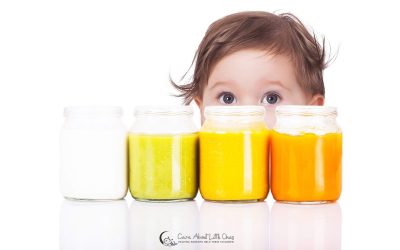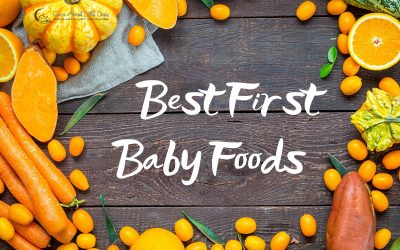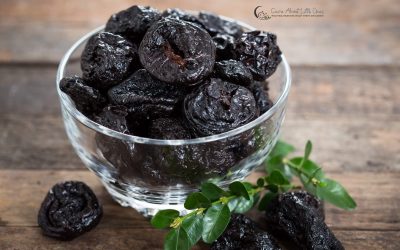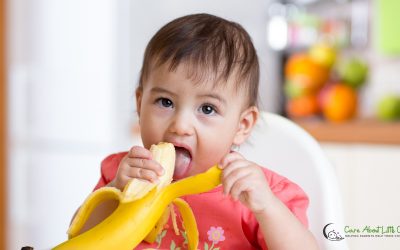Do Avocados Make Babies Constipated?
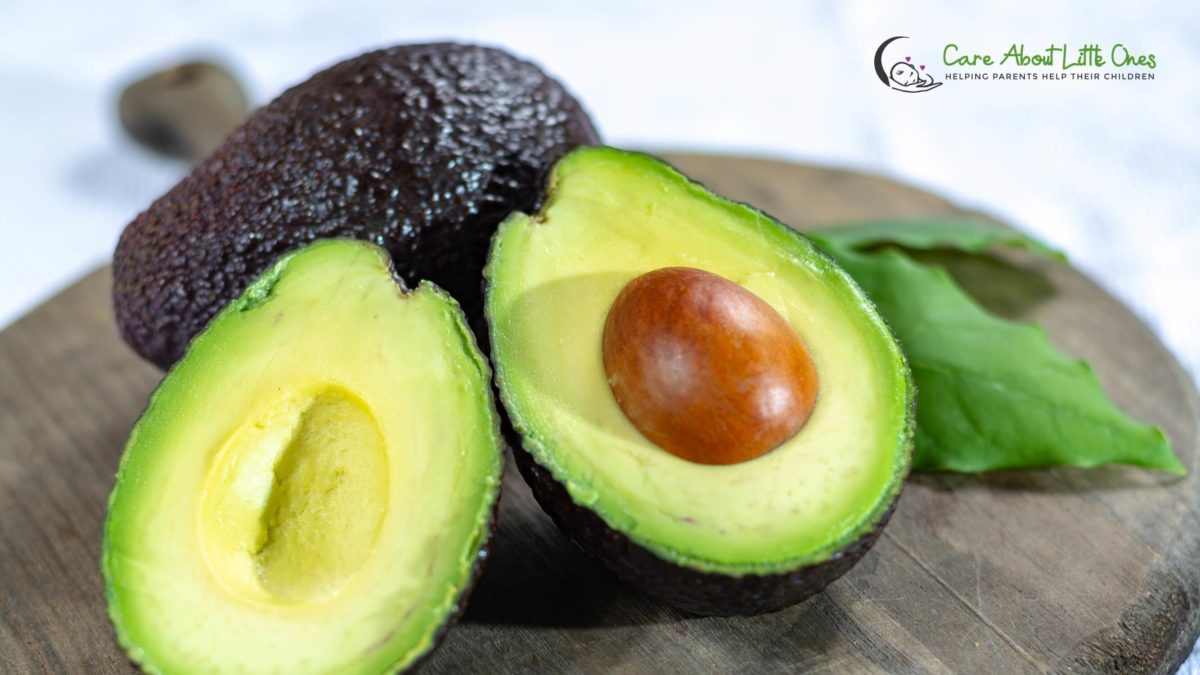
Table Of Contents
Avocados normally do not make babies constipated, according to recent studies. In fact, they are high in fiber, both soluble and insoluble, and they will usually contribute to maintaining a healthy digestive system. Nevertheless, there are circumstances under which avocados can cause constipation in babies.
Under Which Circumstances Can Avocados Make A Baby Constipated?
Science tells us that avocados do not cause constipation. Nevertheless, I have met many parents who have claimed that their baby gets constipated as soon as they feed her avocados. And that’s absolutely possible! However, practitioners and doctors in our Western society won’t be able to explain why.
So, if you want to understand, why avocados can cause constipation in some babies, but not in others, you first need to understand, how Traditional Chinese Medicine (TCM) looks at digestion and the problem of constipation:
How Digestion Works According To TCM
Think of the digestive system as a burning fire. The fire represents the stomach. It has the task to digest food.
Once digested, the spleen can then extract the food’s energy and send it to all the other organs in the body. The organs, on the hand hand, need that energy to maintain their normal function.
For this to happen, the digestive fire needs to burn just at the right temperature. If it is getting too cold or too hot, the food cannot be digested properly.
According to TCM, the main factor which influences the temperature inside the body is the food itself. In fact, in TCM, foods are classified according to the energy that they release in the body:
Cold/cool foods (like bananas, kiwi, apples, broccoli and button mushrooms) can cause the temperature in the body to decrease. Hot/warm foods (like peach, raspberry, dates, pumpkin and fennel) do the exact opposite.
On the other hand, there are also neutral foods (like apricots, celeriac, potatos and peas) which do not have an impact on the body’s temperature.
Note that the terms cold/cool and hot/warm do not necessarily relate to the very temperature of the food itself!
For example, mint tea normally has a hot temperature when we consume it. Yet, in TCM, it is considered “cool”, because it will cool down the body’s temperature once consumed.
If you want to know more about which foods have a cooling or warming effect on your baby, read my blogpost Baby Foods That Help With Constipation!
So Do Avocados Make A Baby Constipated Then?
However, if the baby’s diet already consists of cold/cool foods in the first place, they can cause troubles.
This is particularly true for the still immature digestive system of a baby. The temperature of the baby’s digestive fire is still very low and not able to absorb all foods properly. Feeding her avocados can cool her system even further down.
And just like extreme cold slows down movements in the nature, a cool diet can slow down the movements in your baby’s body (1).
Digestion-wise, this means that the transportation of her stools can slow down. This can lead to stomach cramps, bloating and, you guessed it right, constipation.
Looking for ways to help your baby with constipation?
Check out my Shonishin Baby Constipation Massage Course and learn how to help your little one!
Do Avocados Make My Baby Poop?
When parents ask me about avocados, it is usually because their baby is constipated. However, some parents have also asked me if avocados are an instant constipation relief for babies, i.e. if avocados can make a baby poop instantly.
The truth is: avocados do not instantly relieve constipation in the sense of a laxative effect. That’s unless overconsumption of avocados leads to too much fiber, which may cause the digestive system to overreact.
However, this is practically impossible. You would have to force-feed your baby to eat such large amounts of avocado.
While avocados may not work instantly in terms of constipation relief, they can certainly help prevent constipation because of their large amounts of fiber.
Fiber keeps the digestive tract of your little one moving. In fact, foods which contain high amounts of fiber are exactly what your baby needs once you introduce solid foods. That’s because fiber helps to maintain a healthy digestive system.
However, keep in mind that this will only work if the baby’s overall diet is not too cold/cool in nature!
Can Babies Eat Too Much Avocado?
Either, the cooling effect of avocados is becoming too strong and your baby develops constipation. Or the effect of feeding her too much fiber kicks in, potentially causing loose stools in your baby.
In order to avoid both, make sure that your baby’s diet is balanced and varied! Such a diet is supposed to include a mix of different vegetables and fruits, of which avocado are only just a small part!
Can Babies Eat Avocado Every Day?
The short answer is, yes, they can. However, please keep in mind that your baby’s diet should be balanced and not only just contain avocados!
A balanced diet does not only mean a combination of different kinds of vegetables and fruits! It also means a mix of “warm” and “cool” foods in the sense of TCM (see above).
With that said, I’d personally rather feed a baby avocado on a daily basis than giving her too many fruits which contain large amounts of sugar.
In fact, many scientists are concerned about the fact that the most popularly consumed fruits for the age group from 6 months onwards, like bananas, pears, apples, strawberries and grapes, tend to be overly sweet and/or high in sugar. Therefore, they do not closely fit the current general recommendations (2).
Avocados on the other hand, contain almost no sugar.
Instead, they have high nutritional values, contain unsaturated oil and are high in fiber and monounsaturated fatty acids. And on top of that, avocados even have the consistency and texture of an ideal food for babies (2).
However, keep in mind though that avocados are cool in nature according to Traditional Chinese Medicine. That is why I would only start feeding your baby avocados from 9 months onwards!
For a full list of suitable baby foods for babies of up to 24 months of age, please read my blogpost Baby Foods That Help With Constipation!
Is Avocado Healthy For Babies And If So, Why?
Lutein Found In Avocado
First, you may have heard of lutein! It is a so-called carotenoid, which naturally occurs in breast milk.
Surprisingly, the concentration of lutein in breastmilk was found to increase from only 25% during the first few days of breastfeeding, to about 50% after one month (3), which is a sign of how important this element is for your baby.
Lutein was also found to be the most abundant carotenoid in avocados (4). Moreover, it is absorbed much better from avocados, compared to other fruits and vegetables with low or no lipid content.
Furthermore, lutein is not only beneficial for your baby’s eye development. It is also related to improved cognitive function and various neuroprotective effects (5, 6, 7).
Monounsaturated Fat
Of course, there are other sources of monousaturated fats, like breastmilk, cow’s milk and eggs. However, oil-containing fruits like avocados have much higher levels of monounsaturated fats than they have other fatty acids (3).
No Sodium
Another benefit of avocado is that they do not contain any sodium.
Why is this so important?
According to scientists, it is key that the sodium levels of infants (particularly if they are less than 9 months) are not messed around with!
The former medical director of St. Louis Children’s Hospital Diagnostic Center, James P. Keating, expressed particular concerns about messing with a baby’s sodium levels, as – in his opinion – the outcome could be fatal in babies of less than 9 months (10).
It seems that avocados won’t do any harm here, since they do not contain any sodium.
Great Source Of Potassium
Note that, as the baby gradually consumes less breastmilk, any alternative diet needs to compensate for the intake of less electrolytes. But studies have shown, that only 5% of toddlers in the US meet the recommended intake levels of potassium (11).
Avocados are also a great source of potassium. Therefore, they are perfectly able to provide the human body with this important electrolyte!
Great Source Of Dietary Fiver
Soluble fiber dissolves in either water or gastrointestinal fluids into a gel-like substance. It’s main benefit is that it can help lower blood cholesterol (12).
Insoluble fiber on the other hand, does not dissolve in water. Instead it remains unchanged as it moves through the digestive system. This helps keeping the digestive system healthy and avoiding constipation.
Avocados consist of 70% insoluble and 30% soluble fibers (13). In so far, they are an ideal food to help maintain a healthy digestive system.
Can Avocados Increase A Baby’s Weight?
However, you need to understand that the problem with that question is that the rationale behind it is wrong. It stems from the intention to feed a baby excessive amounts of avocado with the desire to help her gain weight.
However, your baby’s diet should not just consist of one main food in general, even if it is such a valuable fruit as avocado.
As healthy as avocados may be, they should only be served as part of a more balanced diet, including both, vegetables and fruits. As such, avocados may contribute to the overall weight gain of your baby, particularly, because it contains high amounts of (healthy) fats.
However, keep in mind that foods with high amounts of fats usually make your baby full much faster. Therefore, she will most likely deny eating additional foods after having eaten avocado.
Can Babies Be Allergic To Avocados?
Gastrointestinal problems like constipation or diarrhea can often be caused by food allergies.
While allergy to avocados does not seem to be very common, it does exist. About 0.2% of the population in the United States is allergic to avocados according to the Asthma and Allergy Foundation of America.
According to the Faculty of Biology, Medicine and Health of the University of Manchester, avocado allergy can take two different forms (14):
Avocado Allergy Related To Allergy To Tree Pollen
These symptoms are identical in both, infants and adults. They are usually local reactions in and around the mouth (swelling of tongue, throat or lips), skin rash and/or watery and itchy eyes.
Avocado Allergy Related To Latex Allergy
It is an example of cross-reactivity in the sense that the proteins which they contain are similar.
Symptoms in infants in case of this second form of allergy can be similar to the first one (swelling of face or lips, rash, wheezing). However, they are usually more severe, including symptoms like abdominal pain, vomiting and diarrhea.
Moreover, note that infants with a latex allergy may also develop similar reactions when exposed to bananas, mango or kiwi!
As unusual as it sounds, latex allergy in children may actually not be unusual at all, according to scientists (15). A study investigating latex allergy in children under 14 in Japan has found that the number of latex allergy steadily increased in pediatric patients with allergic diseases (16) in the years from 2001 until 2003.
If your baby shows signs that could be similar or identical to the symptoms above, contact your pediatrician to rule out an allergy!
Summary
To sum up, avocados are a very valuable food for your baby!
They are packed with important essential and non-essential nutrients, electrolytes and other ingredients. These ingredients can support the development of your baby. In fact, avocados are particularly beneficial for the development of her eyes, her brain and her nervous system.
Moreover, avocados have a great consistency and make it the perfect food for your baby. Due to the high amounts of fiber, avocados can help infants maintain a healthy digestive system by preventing constipation. However, it is not a remedy for immediate constipation relief.
From a Traditional Chinese Medicine point of view, avocados are cool in nature. That’s why avocados can also make a baby constipated. However, this can only happen if avocados are part of a cold/cool overall diet (in the sense of TCM).
Because of that, it is important that avocados are only part of a much more balanced diet, including both, vegetables and fruits. Moreover, these vegetables and fruits should be a balancing mix of cool and warm foods (again, in TCM terms). This helps to maintain just the right temperature in the digestive tract.
Finally, keep in mind that your baby may be allergic to avocado. If that’s the case, the allergy is most likely linked to other allergies, like tree pollen allergy and most importantly, latex allergy.
Sources
(1) Craig Thomas: Tallahassee Chinese Medicine. Accessed on 04/21/2019: https://www.tallahasseechinesemedicine.com/uploads/1/0/2/7/102775734/constipation.pdf.
(2) Kevin B. Comerford, et al. (2016): The Role of Avocados in Complementary and Transitional Feeding. In: Nutrients. 2016, 8 (5), 316.
(3) Kevin B. Comerford, et al. (2016): The Role of Avocados in Maternal Diets during the Periconceptional Period, Pregnancy, and Lactation. In: Nutrients. 2016 May 21; 8 (5).
(4) Ofelia B. O. Ashton (2006): Pigments in Avocado Tissue and Oil. In: Journal of Agricultural and Food Chemistry. 2006 Dec, 54 (26): 10151–10158.
(5) Johnson, E.J. (2014): Role of lutein and zeaxanthin in visual and cognitive function throughout the lifespan. In: Nutrition Reviews. 2014 Sep; 72 (9): 605-12.
(6) Ozawa Y., et al. (2012): Neuroprotective effects of lutein in the retina. In: Current Pharmaceutical Design. 2012; 18 (1): 51-6.
(7) Vishwanathan R., et al. (2014): Lutein and preterm infants with decreased concentrations of brain carotenoids. In: Journal of Pediatric Gastroenterology and Nutrition. 2014 Nov; 59 (5): 659-65.
(8) Martysiak-Zurowska, D., et al. (2011): Fatty acid composition in breast milk of women from Gdansk and the surrounding district in the course of lactation. In: Developmental Period Medicine. 2011; 15: 167–177.
(9) Sheila M. Innis (2014): Impact of maternal diet on human milk composition and neurological development of infants. In: The American Journal of Clinical Nutrition. 2014 Mar; 99 (3):734S–741S.
(10) James P. Keating, MD: Water Intoxication in Infants. (Accessed on 04/19/2019: https://www.stlouischildrens.org/health-resources/pulse/water-intoxication-infants).
(11) Niu Tian, et al. (2013): Sodium and potassium intakes among US infants and preschool children, 2003–2010. In: The American Journal of Clinical Nutrition. 2013, Oct; 98 (4): 1113–1122.
(12) Kim Y., Je Y. (2016): Dietary fibre intake and mortality from cardiovascular disease and all cancers: A meta-analysis of prospective cohort studies. In: Archives of Cardiovascular Diseases. 2016 Jan; 109 (1): 39-54.
(13) Mark L., et al. (2013): Hass Avocado Composition and Potential Health Effects. In: Critical Reviews in Food Science and Nutrition. 2013 May; 53 (7): 738–750.
(14) The University of Manchester (2006): Allergy information for: Avocado (Persea americana). Accessed on 29/04/2019: http://research.bmh.manchester.ac.uk/informall/allergenic-food/index.aspx?FoodId=4.
(15) Kimata, H. (2004): Latex allergy in infants younger than 1 year. In: Clinical & Experimental Allergy. 2004 Dec; 34(12):1910-5.
(16) Kimata, H. (2005): Increased incidence of latex allergy in children with allergic diseases in Japan. In: Public Health. 2005 Dec; 119 (12): 1145-9.
Medical Disclaimer: The information on this page is not intended to diagnose, prevent, mitigate, treat or cure any disease! It is not personal medical advice. We recommend that you ask a doctor whenver you are looking for medical advice!
ABOUT THE AUTHOR
Nathalie Kaufmann
Nathalie is a pregnancy and birth Consultant and a TCM Therapist with almost 20 years of experience in Traditional Chinese Medicine (TCM), acupuncture, reflexology, Shonishin baby massage techniques, Western and Eastern massage techniques (including TUINA), as well as herbal medicine and nutrition.
She has worked in hospitals across London and was Head of the Maternity Acupuncture Clinic at the Whittington hospital in London. Today, Nathalie runs her own practice in London and helps pregnant women with pregnancy- and birth-related issues. She also specializes in alternative treatments for babies and children.
RELATED BABY MASSAGE COURSES
Looking for ways to help your baby with constipation?
Check out our Shonishin Baby Constipation Massage Course and learn how to help your little one!
RELATED POSTS
Signs Of Constipation In Babies (0-24 Months)
This blogpost informs about the signs of constipation in babies, given a baby’s diet and age. It also informs about what’s normal in terms of her bowel movements.
Home Remedies For Baby Constipation (Guide 0-24 Months)
This blogpost informs about home remedies for baby constipation! It also helps parents to pick the right remedy, given the fact that not each remedy is equally efficient and suitable given a baby’s age.
What Causes Constipation in Babies?
This blogpost informs about the 8 most important factors which can cause constipation in babies. We analyze each factor from a scientific and practical point of view.
Best First Baby Foods To Avoid Digestive Issues (4-24 Months)
Choosing the best first baby foods is based on three factors. This blogpost informs about what these factors are. It also provides a list of best first baby foods depending on your baby’s age. Finally, it serves as a foods guide for babies up to 24 months of age in order to avoid digestive issues.
Baby Foods That Help With Constipation (0-24 Months)
This blog post informs about foods that babies can eat depending on their age in order to prevent and/or relieve constipation.
12 Ways To Prevent Colic In Babies During Pregnancy
This blog post explains the 12 things that pregnant women can try to prevent colic in their baby.
7 Reasons Why Breastfed Babies Can Get Colic
This blog post summaries the 7 reasons why exclusively breastfed babies can get colic. It also gives practical advice on what to do in order to prevent baby colic.
Anti-Colic Diets For Breastfeeding Mothers: Do They Work?
This blog post summarizes what we currently know about the effect of a breastfeeding mother’s on baby colic. Moreover, it educates about what foods not to eat while breastfeeding a colic baby (according to scientists) and what mothers need to consider before making a decision if they should restrict their diet or not.
Baby Constipation And Bananas: When Can Babies Eat Them?
This blog post informs about the circumstances under which bananas can cause constipation in babies and when they can actually relieve it.


